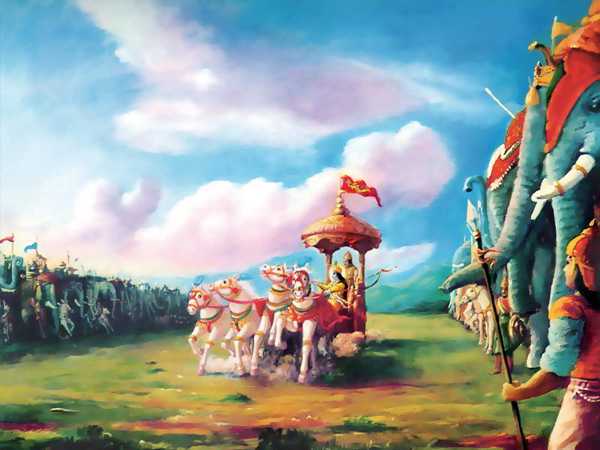Chapter 28

“Yudhishthira said, ‘Without doubt, O Sanjaya, it is true that righteousdeeds are the foremost of all our acts, as thou sayest. Thou shouldst,however, ensure me having first ascertained whether it is virtue or vicethat I practise. When vice assumes the aspects of virtue and virtueitself wholly seems as vice, and virtue, again, appears in its nativeform, they that are learned should discriminate it by means of theirreason. So, again, virtue and vice, which are both eternal and absolute,exchange their aspects during seasons of distress. One should followwithout deviation the duties prescribed for the order to which he belongsby birth. Know, O Sanjaya, that duties in seasons of distress areotherwise. When his means of living are totally gone, the man, that isdestitute should certainly desire those other means by which he may beable to discharge the sanctioned duties of his order. One that is notdestitute of his means of living, as also one that is in distress, are, OSanjaya, both to be blamed, if they act as if the state of each wereotherwise. When the Creator hath ordained expiation for those Brahmanas,who, without wishing for self-destruction, betake themselves to acts notsanctioned for them, this proves that people may, in season of distress,betake to acts not ordained for the orders to which they belong. And, OSanjaya, thou shouldst regard them as worthy that adhere to the practicesof their own order in usual times as also those that do not adhere tothem in season of distress; thou shouldst censure them that act otherwisein usual times while adhering to their ordained practices during times ofdistress. As regards men desiring to bring their minds under control,when they endeavour to acquire a knowledge of self, the practices thatare ordained for the best, viz., the Brahmanas, are equally ordained forthem. As regards those, however, that are not Brahmanas and that do notendeavour to acquire knowledge of self, those practices should befollowed by them that are ordained for their respective orders in seasonsof distress or otherwise. Even that is the path followed by our fathersand grandfathers before us and those also that had lived before them. Asregards those that are desirous of knowledge and avoiding to act, eventhese also hold the same view and regard themselves as orthodox. I donot, therefore, think that there is any other path. Whatsoever wealththere may be in this earth, whatsoever there may be among the gods, orwhatsoever there may be unattainable by them,–the region of thePrajapati, or heaven or the region of Brahma himself, I would not, OSanjaya, seek it by unrighteous means. Here is Krishna, the giver ofvirtue’s fruits, who is clever, politic, intelligent, who has waited uponthe Brahmanas, who knows everything’ and counsels various mighty kings.Let the celebrated Krishna say whether I would be censurable if I dismissall idea of peace, of whether if I fight, I should be abandoning theduties of my caste, for Krishna seeketh the welfare of both sides. ThisSatyaki, these Chedis, the Andhakas, the Vrishnis, the Bhojas, theKukuras, the Srinjayas, adopting the counsels of Krishna, slay their foesand delight their friends. The Vrishnis and the Andhakas, at whose headstands Ugrasena, led by Krishna, have become like Indra, high-spirited,devoted to truth, mighty, and happy. Vabhru, the king of Kasi, havingobtained Krishna, that fructifier of wishes, as his brother, and uponwhom Krishna showers all the blessings of life, as the clouds upon allearthly creatures, when the hot season is over, hath attained the highestprosperity, O sire, so great is this Krishna! Him you must know as thegreat judge of the propriety or otherwise of all acts. Krishna is dear tous, and is the most illustrious of men. I never disregard what Krishnasayeth.'”




